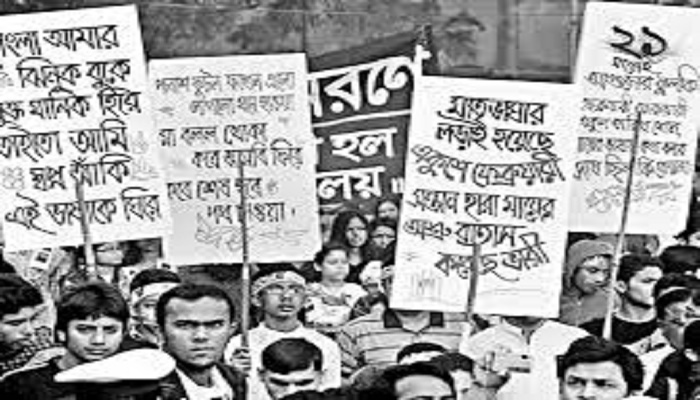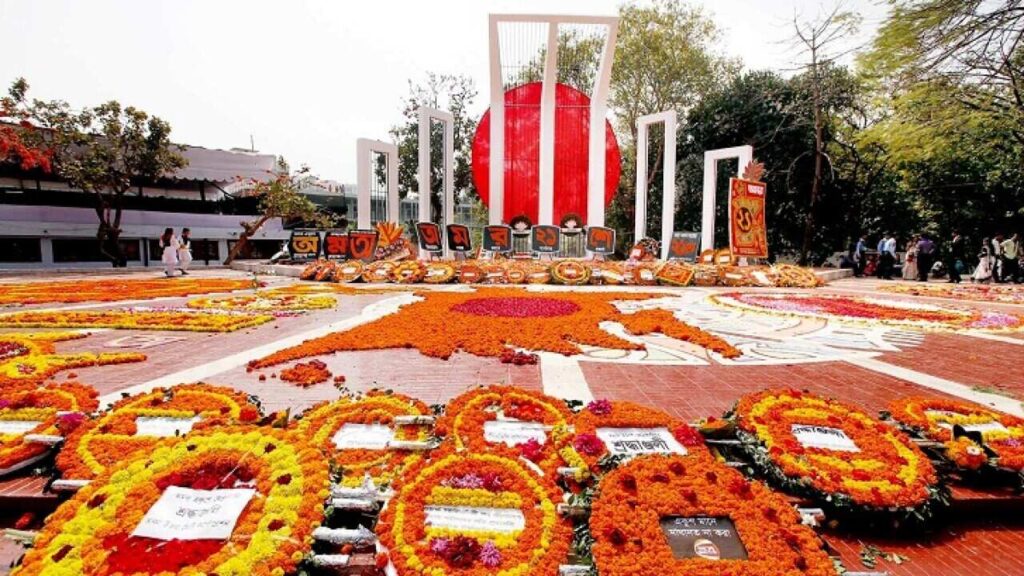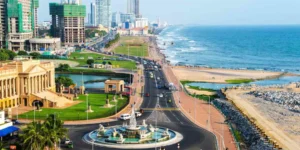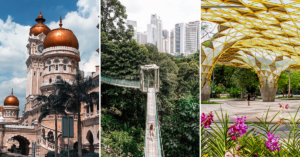Hi there! Hope you all are doing well. You all have heard about International Mother Language Day, right? But would you believe me if I said, an entire nation has shed their blood for speaking their mother tongue? Yes, I am talking about Bengalees. The only nation in the world to shed their blood to protect their right to speak their mother tongue. This blog will guide you through the history of International Mother Language Day, why it is important, and how the sacrifice of Bengalees was recognized by the United Nations.
History
We keep hearing about the India-Pakistan Partition in 1947 quite often. But these two weren’t the only countries to get affected by the partition. Bangladesh was also a big stakeholder of the partition although it was a part of Pakistan then. The partition divided Pakistan into two parts. East and West Pakistan. Bangladesh was East Pakistan. The two parts of Pakistan had nothing in common except for religion.
On 21st March 1948, then Governor General of Pakistan Mohammad Ali Jinnah declared, and I quote, “Urdu and Urdu shall be the only state language of Pakistan. On 27th January 1952, then Prime Minister of Pakistan Khaza Nazimuddin repeated the words of Jinnah and further added that no nation can move forward with multiple state languages. This declaration worked as the primary fuel for the Language movement on 21st February 1952.
To neutralize the situation, the authorities imposed a curfew in Dhaka for one month on 20th February. However, the students at Dhaka University decided to break the curfew and hold a road march on 21st February. As previously decided, the students of different educational institutions gathered at the Dhaka University campus.

After multiple rounds of tear shell attacks on students, police openly shot students at 3 pm. Abdul Jabbar and Rafiq Uddin were instantly shot dead. Abdus Salam and Abul Barkat later died in the hospital. One 9-year-old kid named Ohiullah was also shot dead on that day. Since then, Bangladeshis have observed the 21st of February as Language Martyrs Day.
UNESCO’s recognition
Taking note of the sacrifices made by patriot Bangladeshis to speak the mother tongue, UNESCO declared 21st February as the International Mother Language Day on 17th November 1999. It was the United Nations’ effort to give a tribute to the language movement of Bangladeshis. Later in 2002, the United Nations General Assembly formally recognized the day as a part of an initiative “to promote the preservation and protection of all languages used by peoples of the world.” Now, more than one hundred countries celebrate the day to promote the preservation of their languages.
Celebrations Around the World
Although a lot of countries celebrate the day in different manners, Bangladesh does its best to ensure the best celebrations. Let us look at how different countries around the world celebrate this day.
Bangladesh
The early hours of 21st February start with lighting up candles in front of the Shaheed Minar throughout the country. In the early morning, people come out of their homes and buy flower bouquets. Then they go to the central Shaheed Minar barefooted to pay tributes to the language martyrs. Besides, Bangla Academy organizes a month-long book fair titled “Omor Ekushey Boi Mela” every year to celebrate the language. Educational institutions all over the country organize cultural competitions to celebrate the hard-earned language.
India
Like Bangladeshis, the Bengali speakers in West Bengal, Assam, and Tripura also celebrate International Mother Language Day respectively. Besides, the Indian government also observes a day following each year’s theme given by the United Nations.
Besides Bangladesh and India, the United States, United Kingdom, Canada, France, and many other countries celebrate the day to celebrate the preservation of all languages around the world. The United States has been organizing the Mother Tongue Film Festival since 2017 to coincide with the day while the UK has its own replica of the Central Shaheed Minar in Aftab Ali Park, Whitechapel.

Importance of International Mother Language Day
There are more than 7100 officially known languages around the world. But how many can you name? Even if you have a good grasp of geography and culture, I am sure you cannot name more than fifty. Even Bangladesh has multiple languages that sound like Bangla. But there has always been pressure from some people to eliminate these languages. They try to deny the existence of these languages by saying they are just distorted versions of the Bangla language.
The same thing is happening with a lot of languages around the world. Communities are learning the common language for the betterment of life. They are also teaching their children the language they need. As a result, the languages slowly fade away with generations. The purpose of this day is to prevent this from happening and take necessary measures to preserve the languages at any cost. Because diversity is beauty.
Ending Up
What Bangladesh had to face to speak their mother -tongue was an unfortunate series of events. We hope no other nation has to face the same fate ever again. It is everyone’s birthright to speak their mother tongue. If the United Nations, countries, and all communities from diverse cultures come forward and collaborate, we sure hope we can do our best to preserve language diversity around the world.


